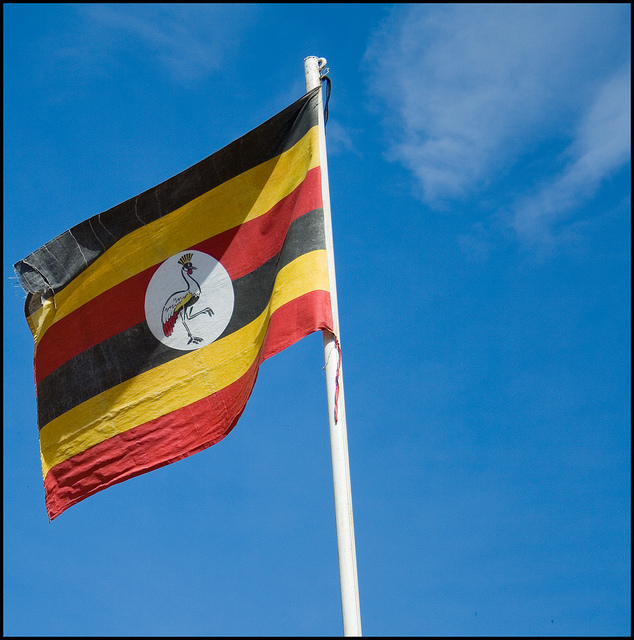
French PV company EREN Renewable Energy and developer Access Infra Africa, a subsidiary of Access Power, have begun construction of a 10MW solar PV plant in Uganda, which will be the largest project in the Eastern region of Sub-Saharan Africa once complete.
The project is located at Soroti around 300 kilometres northeast of the Ugandan capital Kampala and will require investment of US$19 million. It is expected to be connected to the national grid by July this year to generate electricity for roughly 40,000 homes and businesses.
Unlock unlimited access for 12 whole months of distinctive global analysis
Photovoltaics International is now included.
- Regular insight and analysis of the industry’s biggest developments
- In-depth interviews with the industry’s leading figures
- Unlimited digital access to the PV Tech Power journal catalogue
- Unlimited digital access to the Photovoltaics International journal catalogue
- Access to more than 1,000 technical papers
- Discounts on Solar Media’s portfolio of events, in-person and virtual
Or continue reading this article for free
Nasir Aku, business developer at Access Power, told PV Tech that the project demonstrates that fast track financial closure can be achieved for renewable energy projects in Africa alongside swift construction as opposed to conventional power plants that can take several years to complete.
He said: “The energy need in Africa is such that urgent steps need to be taken and fast-track projects like this one need to be replicated.”
Aku said that as with any power project in Africa the first problem that any developer will encounter is the policy framework – adding: “Over the years, bureaucracy, corruption and such vices have been a bane to the development of the general African economy, power sector inclusive.”
However, collaborations with entities such as Germany’s KfW Development bank in the ‘GET FIT’ programme are making business easier in East Africa, and the Soroti project is the first to be developed under the scheme. The first phase of the GET FIT programme includes fast-tracking a portfolio of 15 small-scale renewable energy generation projects promoted by private developers with a total installed capacity of roughly 125MW. KfW is in partnership with the government of Uganda through the country’s Electricity Regulatory Agency (ERA) and the GET FIT facility is funded by the European Union Infrastructure Trust Fund, and the governments of Germany, Norway and the UK.
Furthermore the World Bank Group’s initiative ‘Scaling Solar’ is assisting African countries in procuring renewable energy quickly and affordably through private investment.
Aku said Access Infra Africa did face challenges with land acquisition because in any traditional African setting, owners do not want to part with their land. However, the firm said it was able to create a model that allows for participation from these landowners and the local community so that the sense of ownership is still there. The community then sees the solar plant as a collective project, he said.
Aku added: “Once you are able to garner the trust and confidence of your partners and stakeholders in any project across Africa you are significantly way ahead of competitors.”
The Soroti project is on schedule and no delays are envisaged according to Aku. The tender was launched in March 2014 and the procurement process managed by KfW.
A 20-year power purchase agreement (PPA) was signed in 2015 with the state-owned utility Uganda Electricity Transmission Company (UETCL). The project also reached financial close on 20 January 2016. The plant also has the capacity to expand as its sub-station is able to handle a further 20MW of solar energy.
Spain’s TSK Group was awarded the engineering, procurement and construction (EPC) contract and will sub-contract parts of the work to local firms.
Aku said that Access Power also has “significant developments” on the way in Kenya claiming that Kenya is more developed than its peers and has a government that is delivering on its promises to work on achieving an energy mix that includes renewables.
He said: “This government is beginning to invite transparency and competition which significantly is driving in private interests to their country.”
Also today, Access Power announced the launch of Access Co-Development Facility (ACF) 2016, which is a US$7 million financial support mechanism for renewable energy projects, which aims to give technical support and guidance to local power project developers.
After successful launch last year, the ACF increased its funding pot for a second round from US$5 million in 2015 to US$7 million for 2016. Projects eligible for the ACF mechanism will be selected by a panel of judges. The winners of ACF 2016 will be announced on Tuesday 21 June.
Reda El Chaar, executive chairman of Access Power, said: “Through this unique facility, we hope to encourage innovation and support companies in their efforts to deliver power to places that desperately need it. Last year we received a total of 55 submissions from 18 countries across Africa, including solar, wind, hydro, hybrid and bio-mass projects.”
